Nutrition Connect, an initiative of the Global Alliance for Improved Nutrition (GAIN) , is dedicated to addressing nutrition challenges through a public-private engagement lens including food loss and waste. To mark the International Day of Awareness of Food Loss and Waste (IDAFLW) 2023, with great pleasure the Nutrition Connect team introduces this specially curated compendium titled - “Reducing the Waste, From Farm to Plate - The Multi-stakeholder Recipe to Reduce Food Loss and Waste”.
In keeping with its north star, to connect evidence with action, for better nutrition through public private engagement, Nutrition Connect engaged thought leaders and practitioners from across the globe with myriad experiences to share their insights and best practices. Their experiences and efforts to address the wicked problem of food loss and waste have been summarised into case studies underscoring circular business models, advancing partnerships, evidence-based research and policy initiatives.
Key Takeaways and Actions
- Embrace a range of solutions from indigenous knowledge, process changes to high-tech innovations and improved market infrastructure to food and nutrition security and minimising greenhouse gas emissions.
- Foster partnerships fuelled by the desire for shared understanding, knowledge and data sharing and innovation to tackle food loss and waste collectively
- Implement Target- Measure-Act Approach provides a framework that is adaptable by organisations of varying capacities with data as a driving force for success.
- Leverage policy and regulatory frameworks to guide food system actors in reducing food loss and waste
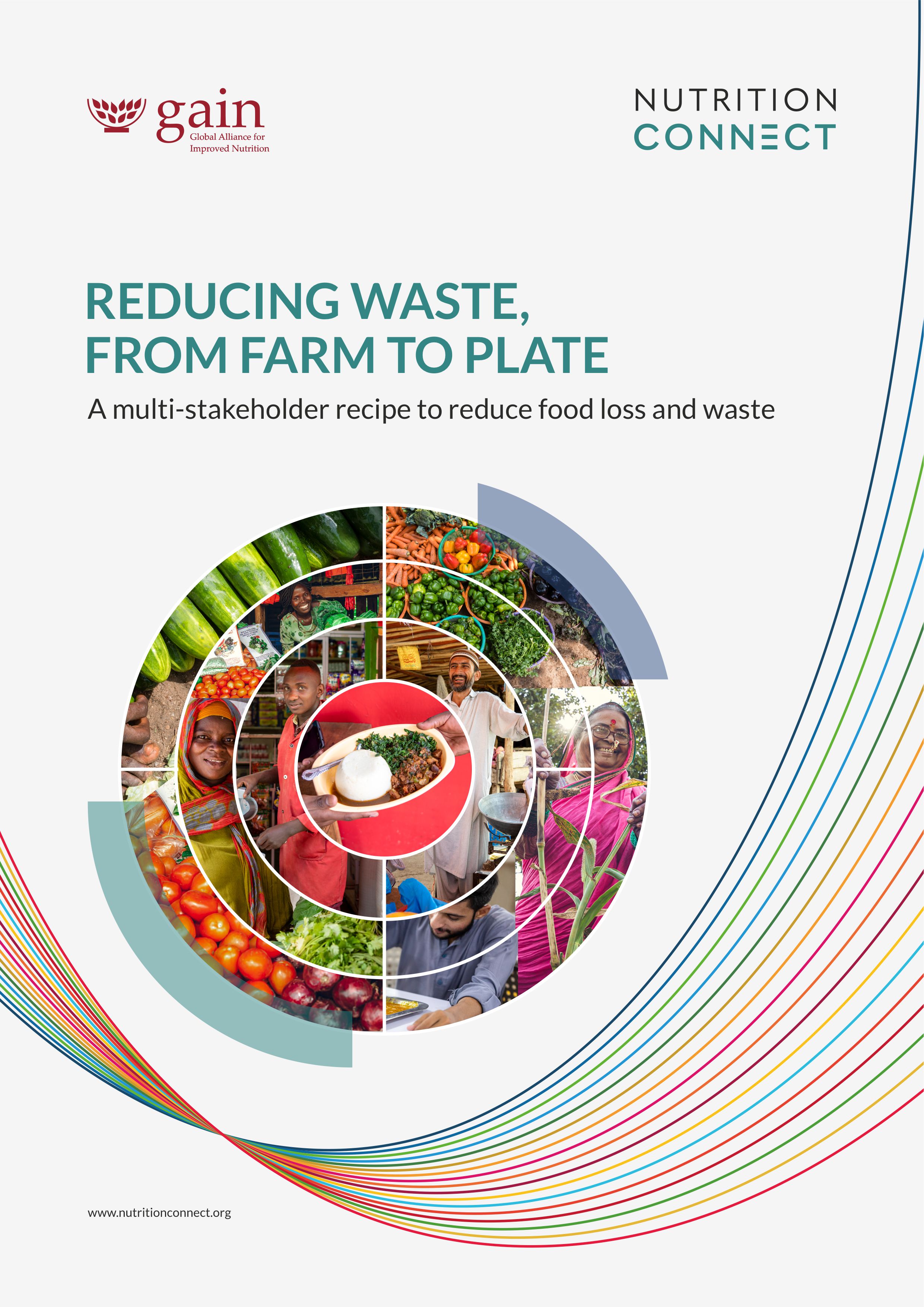
The Role of Multistakeholder Partnerships in Addressing
Food Loss & Waste and Nutrition
Download CompendiumIntroduction
The global food system is in crisis marked by the triple burden of malnutrition; undernutrition (stunting and wasting), overnutrition ( overweight and obesity) and micronutrient deficiencies (hidden hunger). Concurrently, more than a third of food produced for human consumption, food we often deem to be medicine, ends up in landfills or is incinerated further fuelling our current climate crisis. To achieve a balanced co-existence of human and planetary health, we must transform our food systems, through collaborations, policy reforms and evidence-based solutions.
The United Nations Sustainable Development Goal 12.3 target– calls for halving per- capita global food waste at the retailer and consumer levels and reducing food losses along production and supply chains. There are global efforts underway to defeat hunger, food insecurity and malnutrition, to raise levels of nutrition and reduce food loss and food waste, keeping a keen focus on sustainable production and consumption practices. Using as a benchmark the “Target, Measure, Act” principle serves as a reliable framework for governments and businesses to accelerate reduction of discarded food, individually as well as a part of a larger collective.
Individual organisations and multi-stakeholder initiatives tackling food loss and waste embrace the Target Measure Act principle and enable implementation within stakeholders across the food system.
"Food loss and waste is not just an environmental problem; it's a humanitarian, social, political, and economic one too. In a world where millions go hungry while vast quantities of food are needlessly discarded, our chance to act arises at each harvest season, each visit to the supermarket, each tabled meal." Mduduzi Mbuya, Director, Knowledge Leadership, GAIN

The Sum is Greater than its Parts
The agencies of public and private sector actors share a chief responsibility towards addressing food loss and waste. While the public sector can bridge institutional gaps and provide space for incentivising the reduction of food loss and waste, the private sector can support the much-needed innovations and enhance investments to reduce food loss and waste. Thus, Nutrition Connect is dedicated to addressing food system challenges including food loss and waste through a public -private engagement lens. As part of its mandate, Nutrition Connect is showcasing organisations and multi-stakeholder initiatives that are actively working to solve this wicked problem.
What this Compendium Offers
- Sobering data points to keep us in check as well as impact numbers to appreciate ongoing efforts from policymakers and the business community.
- Evidence-based approaches, using data and insights to inform where hotspots occur throughout the value chain and what impactful interventions are required. While acknowledging the influence of our food environments shaping our societal norms and market influences. More pertinently, our diverse socio-cultural, economic and geographic contexts that present both challenges and opportunities for addressing food loss and waste.
- Initiatives from across the globe with the aim of gaining a nuanced understanding of their work and organisational goals in this direction, at different points of the food supply chain.
- Examples of business models and innovative solutions that embrace indigenous knowledge, behaviour change and high-tech machinery that are leading to marked food loss and waste reduction
- Partnerships and coalitions co-creating solutions and harnessing resources of data, finance and networks to ensure safe and nutritious food reaches those who need it the most.
- Policy frameworks and voluntary codes to guide food system actors in their operations and multi-stakeholder engagements. Collaboration with stakeholders across the food system that enables ‘farm to fork’ consideration of impact and action, for overcoming common barriers, fostering innovation, scaling impact and ushering multiple benefits.
The International Day for Awareness on Food Loss and Waste provides an opportunity for food system actors to pause, reflect and strive to balance, satiating world hunger, and nourishing people especially the most vulnerable, without being detrimental to the planet. The case studies within this compendium serve as actionable examples with insights from varied contexts for tending to the urgency to address food and nutrition security, while rooted in science and societal norms. The clarion call is for collaboration, innovation and data-driven action as key to transforming our food systems and reducing food loss and waste, for ensuring a sustainable future for all.
Case Studies




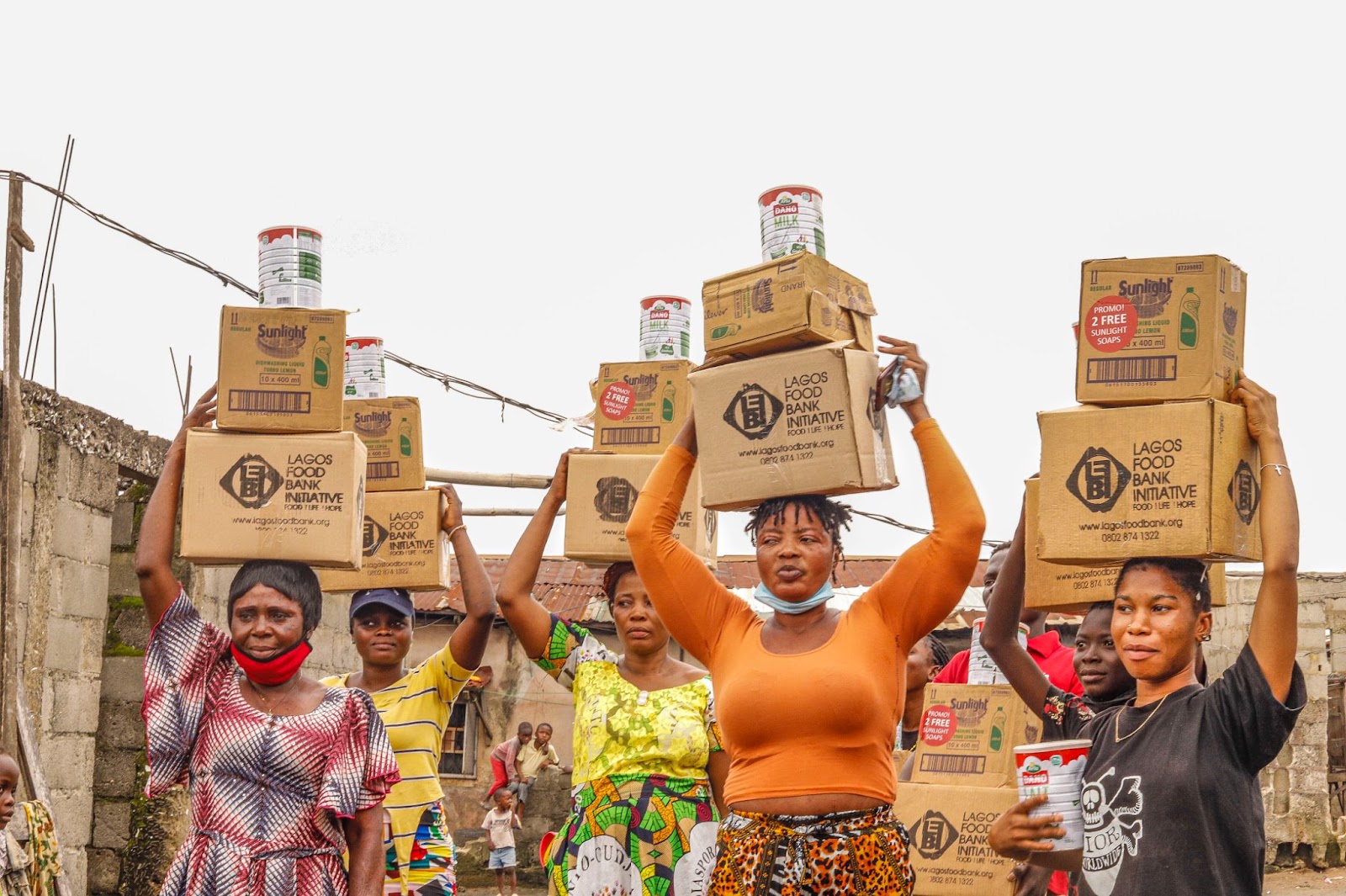



Regional and National Policy Initiatives
Food and Agriculture Organization of the United Nations (FAO)
read more >
Regional and National Policy Initiatives
Food Safety and Standards Authority of India (FSSAI)
read more >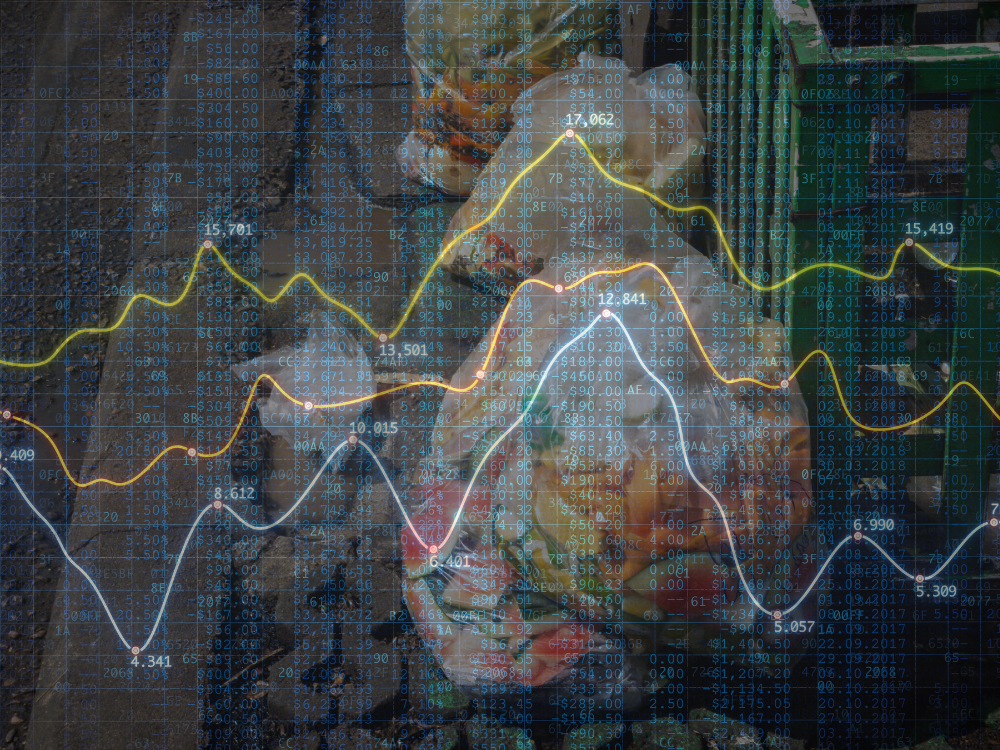

aaa
The Contributors
.jpg)
Ignacio Gavilan
Senior Director, Food Systems & Partnerships
The Global FoodBanking Network (GFN)

Charlotte Pedersen
Senior Advisor, Nordic Partnerships
Global Alliance for Improved Nutrition (GAIN)

Charlotte Sørensen
Senior Business Development Manager
Arla Food Ingredients (AFI)

Tannaza Sadaf
Portfolio Lead, Fortification
SUN Business Network (SBN Pakistan), GAIN
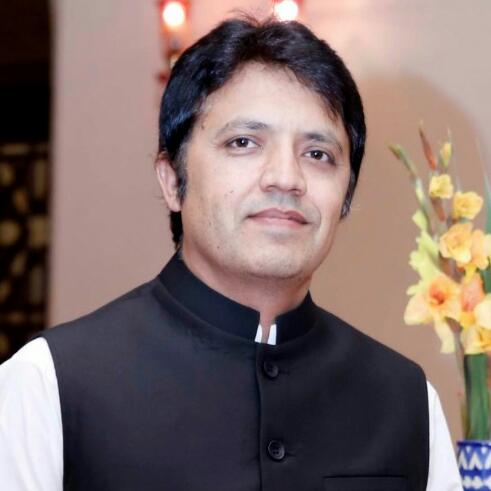
Badar Uzman
Program Policy Officer
National SUN Secretariat, Ministry of Planning Development and Special Initiatives, Government of Pakistan

Muhammad Usman Ali
Business Engagement Associate
SUN Business Network (SBN Pakistan), GAIN
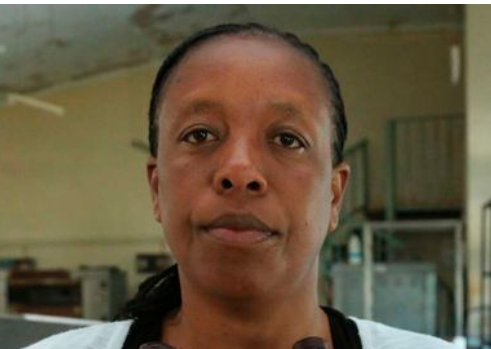
Askah Nyakwara
Founder
Nyangorora Banana Processors, Kenya

Teale Yalch
Manager, EatSafe Operations and Partnerships
Global Alliance for Improved Nutrition (GAIN)

Jackie Suggitt
Capital, Innovation & Engagement Director
Rethink Food Waste through Economics and Data (ReFED)

Michael Jones
International Partnerships Manager
The Waste and Resources Action Programme (WRAP, UK)

Divine Njie
Deputy Director, Food Systems and Food Safety Division
Food and Agriculture Organization of the United Nations(FAO)

Sara Granados Ortiz
Regional Advisor, Food Systems and Governance
Food and Agriculture Organization of the United Nations(FAO)
Shweta Lamba
Senior Project Associate
World Resources Institute (WRI India)

Eleni Michapoloulou
Research Associate Stockholm Environment Institute, University of York
Project Fellow, World Economic Forum.

Inoshi Sharma
Executive Director
Food Safety Standards Authority of India (FSSAI), Ministry of Health & Family Welfare, Government of India

Jane Karkada
Executive Director
Confederation of Indian Industry

Rodman Ochoa
Nutrition SC Innovations & Strategic Programs Lead
Unilever

Clementine O'Connor
Programme Management Officer, Energy & Climate Division
United Nations Environment Programme (UNEP)